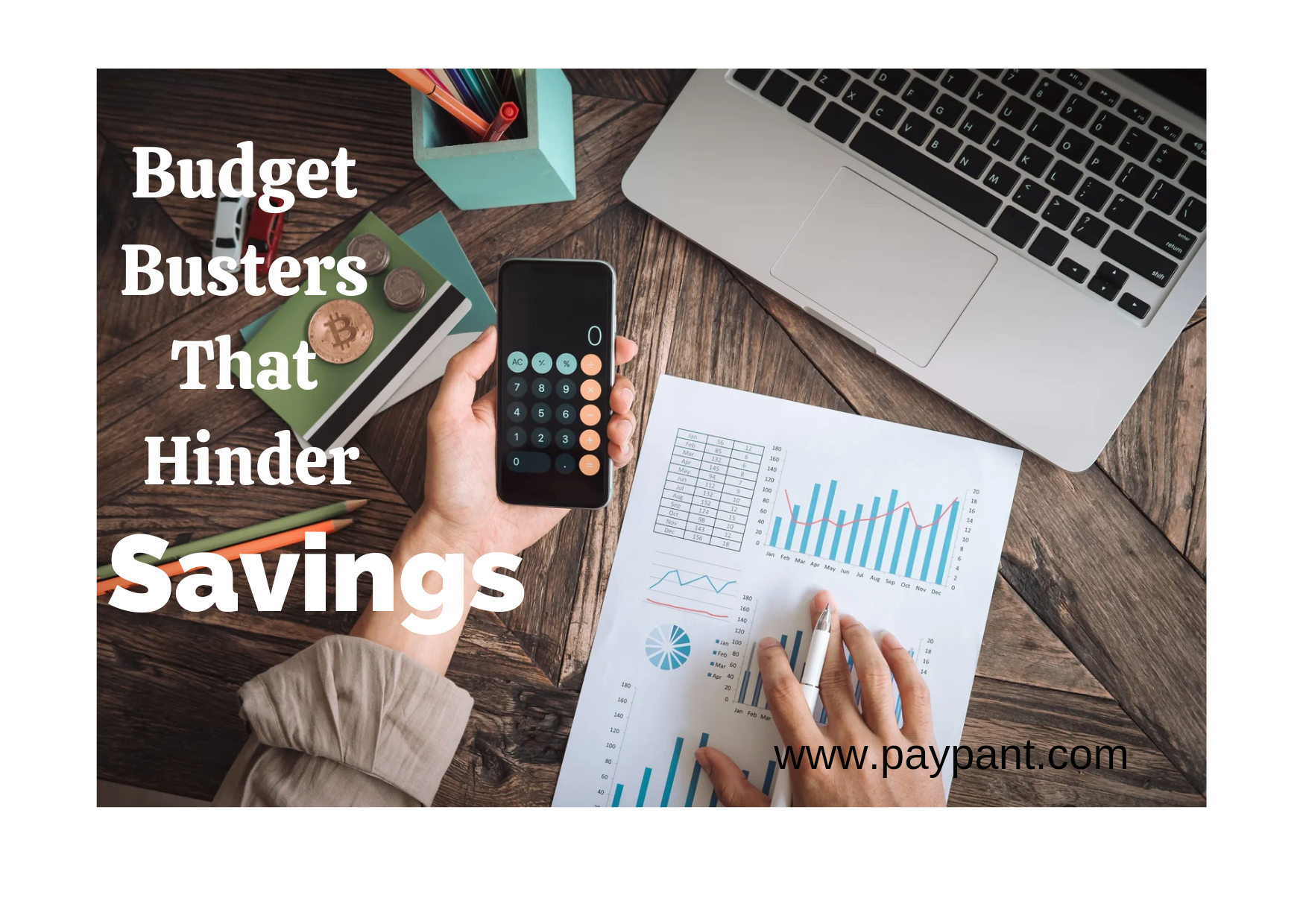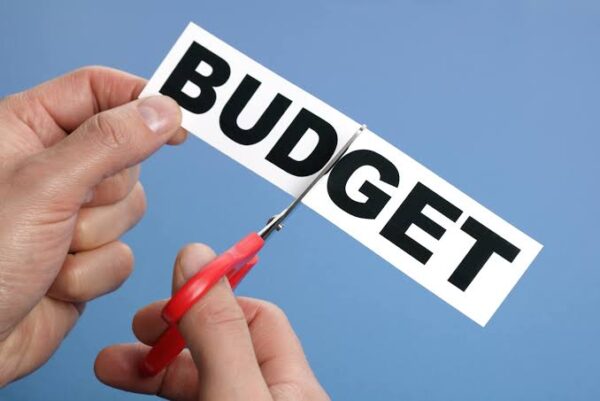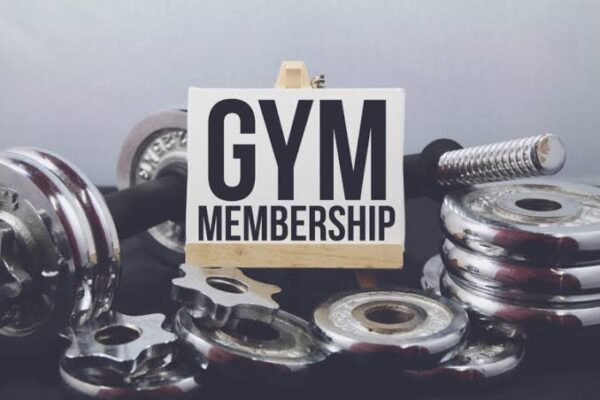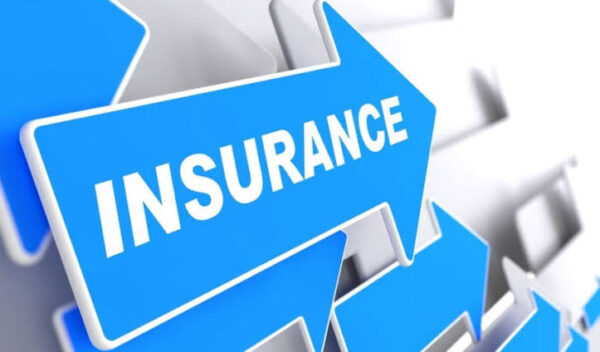30 Budget Busters That Will Hinder Your Savings

If you want to save more money or make budgeting more fun, here are the budget busters to avoid. Instead of being stagnant with budgeting, the timeless money hacks we explained will help you stay within your budget if you control the budget busters listed. Paypant.com have listed the 30 Budget busters that will hinder your savings and stagnate your financial goals.
When you're trying to set up a budget or make room in your budget for more money, it can be hard to cut certain expenses. It's easy to think that those items on your spending list is necessary for you to live.
Due to your money mindset, you can get into bad money habits with your savings with these budget busters. A lot of people have trouble cutting these budget busters. Rather than cut it abruptly, find cheaper ways to do some of the things that are most important to you. This will help you save money and still do the things you like. For instance, you might want to do some of these things with the extra money you save:
Before you buy that $5 latte or a new shirt, you need to read this: Americans' average personal savings rate dropped in the recent years. This is the lowest level since the early 2000s. Also, the U.S. Commerce Department predicts the savings rate of Americans to drop below 1% by the end of this year. Again, it will be the lowest savings rate since the Great Depression.
Related: Survey: Half of Americans Don’t Have $250 to Spare (And Why You Should Learn to Save)
Money experts at the Consumer Federation of America say that the rise in impulse purchases is to blame for the drop in the average amount of money people save. You may ask, "What is a budget buster?"
What Is a Budget Buster?

A budget buster is any expense that exceeds your budget or places undue strain on your financial situation. Budget busters come in many kinds and sizes, from impulse purchases to that drive-through on your way home from work.
We've produced a list of the 30 worst budget offenders you should avoid if you want to save money on this post.
Why You Should Maintain a Budget
One of the best things you can do to manage your money is to have a fixed budget. It's a good thing because it will help you figure out how much money you need to spend on each category or expense in your home.
By spending a set amount on groceries and entertainment, for example, you will be able to save more money and still have some leftovers in case of financial emergency. This shows that making and sticking to a budget can help your money in the long run, no matter what age you are.
If you don't know about budget busters, you might have spent too much on things you didn't need because you thought they were just average monthly bills. But if you set aside a certain amount each month for each category, you will be able to stick to your budget and not spend more than you planned.
Why You Need Budget Planner

Most people believe that creating a budget is a tedious task. However, all you need are simple worksheets, spreadsheets, or, even better, apps to track how much money you have left at the end of each week.
Nowadays, most people can create budgets using apps or spreadsheets. It also informs you if your expenditure has exceeded your income. If your income exceeds your expenses, you could put the surplus money into savings to be used for another investment.
30 Budget Busters That Will Hinder Your Savings
Here are 30 things that can limit your ability to save money.
1. Living In a Place You Can't Afford
(Buster: Housing takes 38% of your monthly income)
Living in a place you can't afford or with higher than your average income can be your budget buster. On the other hand, housing costs that are too high are one of the biggest (and most painful) things that can break the budget.
This can mean anything from paying too much in rent to having a mortgage payment that is too high. Housing choices should be based on need and ability to pay, not on pressure from inside or outside.
When your mortgage or rent costs more than 25% of your monthly income, it can be hard to pay all your other bills. So make a budget before you get a mortgage.
You should not just take whatever the bank is willing to give you as a loan for a home. Instead, you should carefully figure out how much home you can afford. It is better to buy a home that you can afford but isn't your dream home than to buy it but not be able to pay for it.
If you live where the cost of living is high, your rent may also be very high. You can cut this cost if you live with a roommate or a little further out of town or in the suburbs.
No matter what, if your housing costs take up a big chunk of your monthly budget, you might want to consider moving somewhere cheaper.
2. Online Shopping

(Buster: Online shopping takes about 23% of your net spendable income)
Everyone knows the convenience of online shopping. However, uncontrolled online shopping can bust your budget and hinder your savings plan.
With just a few clicks, you can buy anything you want and have it sent right to your door. But this ease of use costs you money and makes it harder to stick to your plans.
It's easy to get caught up in the moment when you're online shopping and spend more than you planned. So, if you want to save money, the best thing is not to shop online. If you have to buy something, just put it in your budget and don't exceed your limit.
Your shopping habits have a significant effect on how much money you spend. So one of the most important things you can do is to go to stores less often. This is true for everything, from buying clothes to buying food.
Read 10 Best Money Saving Apps for Shopping & Groceries In 2022 (Reach Your Goals!)
To manage this budget buster, take shopping apps off your phone and unsubscribe from online stores' emails. Then, before you buy something, try writing down what it is and how much it costs.
Then, please wait 48 hours before you buy it or anything else in your shopping cart. This way, you can ensure it fits your budget and lifestyle.
If you forget about it two days later, you likely didn't need the item but just wanted something to make you feel better at the time.
3. Buying Unnecessaries In Bulk
Buying bulk can be a budget buster, just like spending money on sales. Getting a lower price "per unit" when you buy more than you need is hard to pass up. But at the end of the day, you still spend more money than if you had just bought what you needed.
You should only buy things in bulk if you know you'll use them and if you have enough money.
Often, you can buy things like toilet paper, soap, butter, and coffee in large quantities. Since you use some of these items frequently, it makes sense to save up over a couple of months and buy them in bulk.
But buying a gallon of pickles or three bottles of ketchup is not advisable just because you get more for your money. Significantly when some of those items' quality reduces with time.
Even though the price "per unit" is better, the total cost makes it hard for you to stay within your monthly budget.
4. Eating Out

Costs can add up fast when you eat out, and constantly patronizing restaurants can bust your budget and hinder your savings. However, if you like to eat out because you want good, freshly made food, you can save money by learning how to make the same things at home.
If you go out to eat because you don't have enough time to cook, try cooking on the weekend and making meals to put in the freezer.
Stop going out to eat, and you'll save a lot of money. If you stop eating out, you can save more than $50 a week, even more if you are married or have kids.
Don't miss this: 40+ Best Fast Food Apps With Free Food (Find Restaurant Apps)
Eating: There are two reasons why eating out can break your budget. Foremost, it usually costs more than cooking at home. Second, spending too much is easy when you don't have to make your food.
A bottle of water costs $1.50. So, buying one bottle of water daily will cost you about $540 over a year. In the long run, this purchase will cost you and the environment.
You shouldn't eat out more than once a week to save money. And when you go out to eat, don't spend more than you had planned.
5. Monthly Subscriptions
Monthly subscriptions can be a great way to save money on the things you want or need. But if you aren't careful, they can quickly burst your budget.
Take an inventory of your monthly subscriptions, so you don't spend too much on them. Then, get rid of any that you no longer need or are costing you money.
See it this way: if you cancel $83.33 worth of monthly subscriptions, you can save $1,000 a year.
Check out: 4 Legitimate Ways to Get Free Netflix
6. Entertainment Costs
Whether you like to go to the opera, watch a lot of sports, or play video games, your entertainment costs can add up quickly and burst your budget. So when you are in debt or money is tight, this is an area where you need to be willing to cut back.
Instead of giving you gifts, ask family members to give you gift cards for tickets or games and cut back on how much you spend instead of going without. For example, this year, instead of going to every home game, you could go to one and watch the rest from home.
You could buy only one game every few months and rent the rest. This method should help you save some money. You might want to look for things to do that don't cost much money.
7. Expensive Vacations

Vacations are a lot of fun, but you shouldn't spend a lot of money on them every year if you have a lot of debt or are struggling to make ends meet.
You can plan shorter trips that cost less money, like camping or trips to places you can drive to. If you don't have any debt and are saving for retirement, you can go on any kind of vacation you want. Just make sure to pay for it in cash.
Using a credit card to pay for your travel costs can leave you with a lot of debt and financial regret when you get back home.
To avoid this, save up for your dream vacation and pay for it in cash. Paypant.com recommends you save money and pay for all your travel costs with a debit card. It will help you stay out of debt, spend only what you can afford, and hopefully keep your travel budget.
8. Gym Memberships

If you pay for a gym membership but don't go very often, you're throwing away a lot of money. To be clear, we are not saying everyone should stop going to the gym.
However, going to the gym often could be one of the most important things you spend money on. After all, good health can't be bought.
If you don't use your gym membership, it costs $40 a month, which adds up to $480 a year. So use the membership or get rid of it.
But if you only go once or twice a month, you might be better off just working out at home.
Related: Make money exercising: Top 25 websites that pay you to exercise
If you need help, there are a lot of great workout programs and videos that don't cost anything that you can find online. But, of course, you could also go for a run, do some push-ups and crunches, and you wouldn't have to pay anything.
9. Cable Television
Cable T.V. can be a big budget-buster because it costs anywhere from $60 to $100 per month to subscribe. So you can save a lot of money every year by getting rid of your cable T.V. bill.
You can save between $720 and $1200 a year by removing your cable. Then, if you still want to see the latest T.V. shows, you can watch them over the Internet with Hulu or a similar service. Saving on cable television is easy to save money; once you cut the cable, you may not miss it.
10. Buying the 'Latest and Greatest' of Items
Are you a gadget junkie? You might feel like you have to have the newest iPhone or tablet. Unfortunately, these kinds of spending sprees are bad for your money. You'd often be better off buying something used or fixed up.
Buying used items is true even for big purchases like homes. We've already said that older homes are often better built than new ones. But if something old makes you nervous, you might want to buy something almost new:
If you like building something from scratch, remember that an existing home doesn't have to be 40-50 years old. If you're willing to be the second or third owner, you might be able to find an energy-efficient home with new features for less money.
11. Impulsive Spending
It's easy to go to the store for just a few things and spend $100 or more. So, discipline comes into play when you are on a Budget.
For instance, use a meal planner so you don't just buy whatever you want at the time instead of what you need. And don't go to the store when you're hungry, or you'll be tempted to buy everything that looks good.
Try to get all your groceries in one big trip once a week, and always shop with a list. Try to limit how often you go shopping, and if you don't have enough money to buy something, don't go shopping for it.
Another trick is to pay for these things with cash. Leave your debit and credit cards at home for this to work.
12. Paying For Insurance You Don't Need

Paying for insurance is often overlooked because many think the more insurance, the better. But certain forms of insurance are just not necessary for most people and can lead you to spend unnecessarily.
5 Insurance Products That are Budget Busters
● Identity Theft Insurance
If your credit card already has protections against fraud built in. Most credit cards, like the Citi® Double Cash Card, let you get cash back.
● Children's Life Insurance
As most children don't have anything to protect. Most child life insurance policies have a savings feature called "cash value" that can be used to pay for college or a down payment on a new home. However, the fees are higher than the rate of return, so parents should put their money elsewhere.
More importantly, open a 529 savings account or make sure you have an emergency fund to cover your child's costs.
● Rental car Insurance
If your typical car insurance has coverage that extends to a rental car, it may be a budget buster going ahead with the insurance.
● Collision Insurance
Suppose your car is old and doesn't have much value. Then, depending on your deductible and the damage, collision coverage on your insurance policy might not make sense.
● Travel Insurance
If you book your trip with a credit card that already has travel insurance, you won't need to buy it. Most travel credit cards, like the popular Chase Sapphire Preferred® Card and Chase Sapphire Reserve®, cover trip cancellation and lost luggage. Check with your card issuer to see if this is the case.
Related: Whole Life vs. Universal Life Insurance: Best Insurance for investing?
13. Alcohol
Another typical budget buster is alcohol. Whether you buy drinks to drink at home or go out to bars, alcohol can hurt your monthly budget.
After a few drinks, it's easy to let your guard down when it comes to money and start spending money you shouldn't. But alcohol is one of the sneakiest ways to spend more than you have.
Prices for drinks vary depending on where you go to drink. On average, a beer costs $5, including the tip. Bankrate says buying two beers daily can cost you $3,650 a year. But, of course, if you buy a round of drinks for your friends, the price will only go up.
The best way to deal with this is to limit yourself to a certain amount of alcohol each month. This limit should cover both drinking out and buying alcohol at the store.
You'd be surprised at how much your budget can improve if you set clear limits on how much you spend on alcohol.
14. Car Expenses
We've already talked about car payments, but even if you own your car outright, there are still several costs that can quickly add up and eat into your budget. When you own and drive a car, many things, like gas, maintenance, repairs, and insurance, can cost money.
About $58 is the average price for basic auto detailing. Not bad if you only do it once in a while. But it will cost you $348 a year to have your car detailed every two months.
And if you aren't careful, these costs can add up quickly. So, if you want to save money, you should reduce your car costs. If you can, take the bus, share a ride, or ride your bike. And make sure that things like insurance and repairs are the best deal you can get.
15. Over-indulging Your Kids
One of the most common budget busters is overspending on your kids.
https://paypant.com/30-budget-busters-that-will-hinder-your-savings/
Comments
Post a Comment